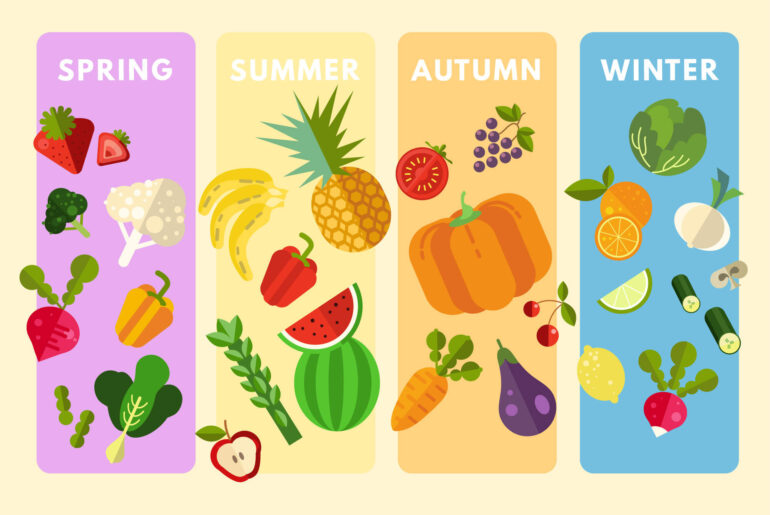Eating a healthy diet that includes plenty of fruits and vegetables is important for overall health and wellness. But did you know that eating seasonal organic produce can offer even more health benefits? Here’s why you should consider incorporating seasonal organic fruits and vegetables into your diet.
1. What are Seasonal Organic Fruits and Vegetables?
Seasonal organic fruits and vegetables are those that are grown and harvested during their natural growing season and without the use of synthetic pesticides, fertilizers, or GMOs. These foods are often fresher and more nutrient-dense than produce that has been shipped long distances or grown out of season.
2. Benefits of Eating Seasonal Organic Fruits and Vegetables
Better Taste: Seasonal organic produce is often fresher and more flavorful than produce that has been shipped long distances or stored for long periods. This means that your food will taste better, and you may even find that you enjoy eating fruits and vegetables more when they’re in season.
Lower Cost: Because seasonal organic produce is grown and harvested locally, it’s often less expensive than produce that has been shipped long distances. This means that you can enjoy the benefits of organic produce without breaking the bank.
Environmental Benefits: Eating seasonal organic produce also has environmental benefits. Buying locally grown produce reduces the amount of energy needed to transport food, and organic farming practices are better for the environment than conventional farming practices.
Support Local Farmers: When you buy seasonal organic produce, you’re also supporting local farmers and the local economy. This can help to build a stronger community and promote sustainable agriculture practices.
3. How to Incorporate Seasonal Organic Fruits and Vegetables into Your Diet
Incorporating seasonal organic produce into your diet is easy. Start by visiting your local farmer’s market or grocery store and looking for fruits and vegetables that are in season. This might include berries in the summer, apples in the fall, and root vegetables in the winter.
You can also try growing your own fruits and vegetables in a backyard garden or community garden. This allows you to control the growing process and ensures that your produce is truly organic and in season.
In conclusion, eating seasonal organic fruits and vegetables is a great way to support your health and the environment. By incorporating more seasonal produce into your diet, you can enjoy the benefits of increased nutrient content, better taste, and lower cost, while also supporting local farmers and promoting sustainable agriculture practices. So next time you’re at the grocery store or farmer’s market, consider choosing seasonal organic produce to nourish your body and support your community.





